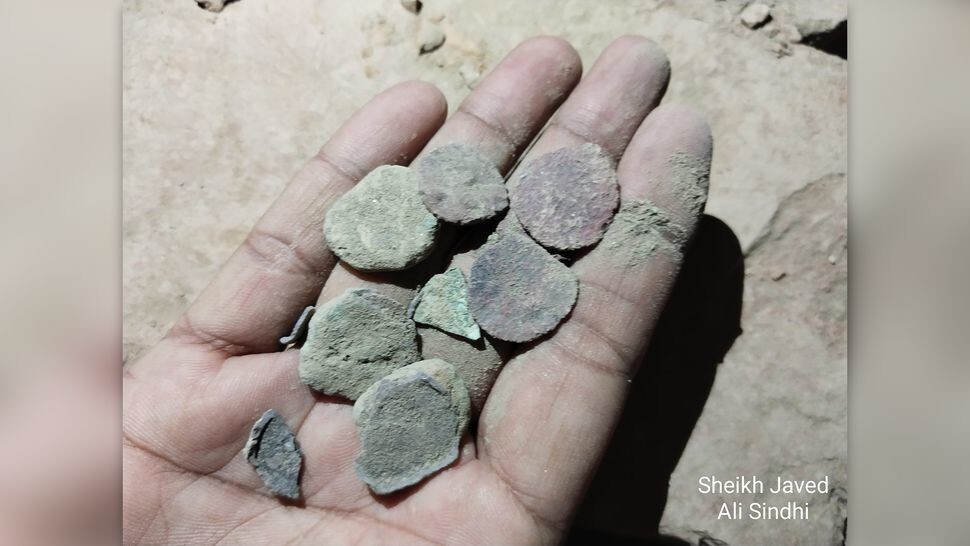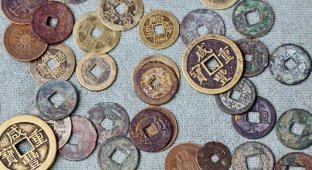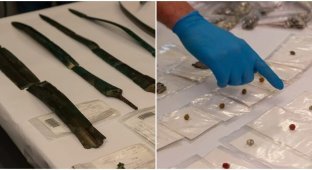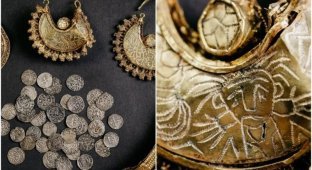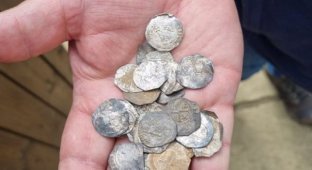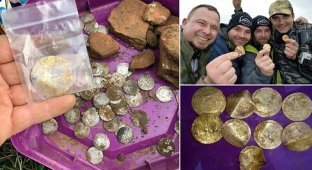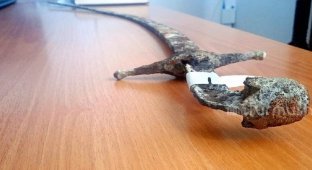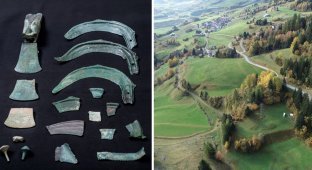Cache of 2000-year-old coins discovered in Pakistan (7 photos)
Archaeologists have found an extremely rare trove of copper coins believed to be over 2,000 years old in the ruins of a Buddhist temple. 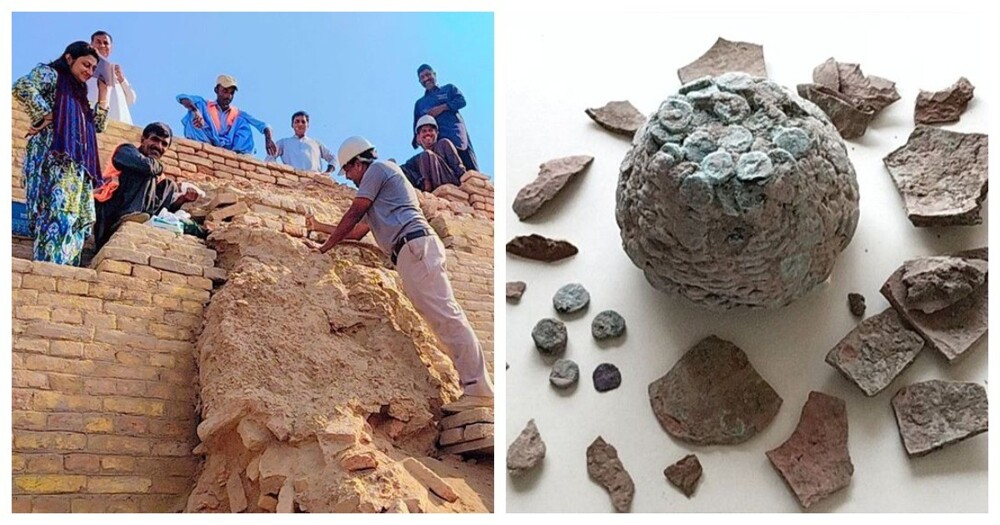
The coins and sanctuary date back to the Kushan Empire, a predominantly Buddhist state that ruled the region from around the 2nd century BC. e. to the 3rd century AD e. The Kushans conquered the Greco-Bactrian kingdom, founded in Central Asia by Alexander the Great.
The temple is located among the ruins of Mohenjo-Daro - an ancient city of the Indus Valley Civilization, which arose around 2600 BC. in what is now Pakistan. 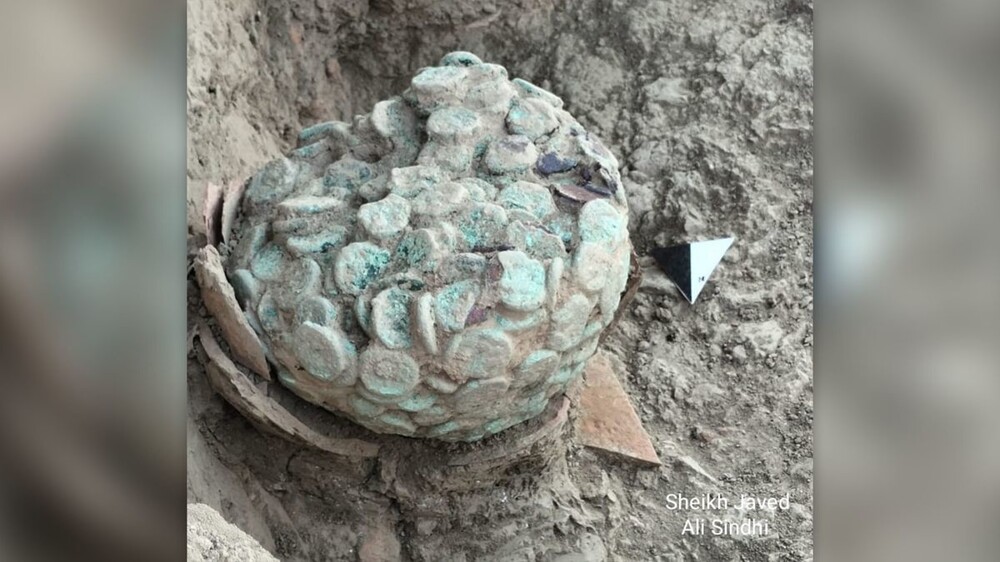
A vessel with coins was found in a stupa - a Buddhist shrine erected on the ruins of Mohenjo-Daro after its decline. The excavations were led by Syed Shakir Shah. Centuries of corrosion fused the coins into a single lump weighing about 5.5 kg.
According to archaeologist and guide Sheikh Javed Ali Sindhi, the treasure probably consists of 1,000-1,500 coins. Some specimens depict the figure of a Kushan king. 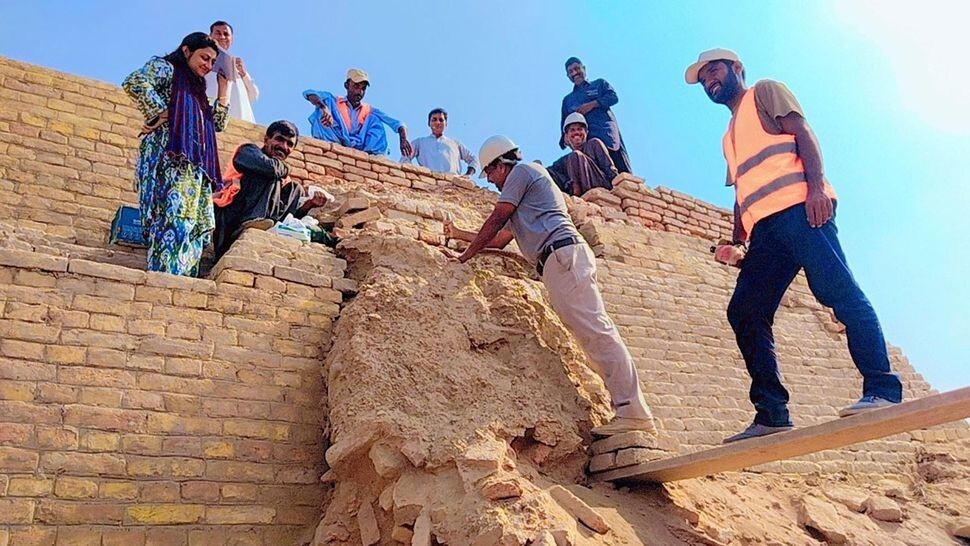
These are the first artefacts found at the stupa since 1931, when British archaeologist Ernest Mackay discovered more than 1,000 copper coins. Early finds show a standing figure of the king on one side, and the god Shiva and other symbols on the other. 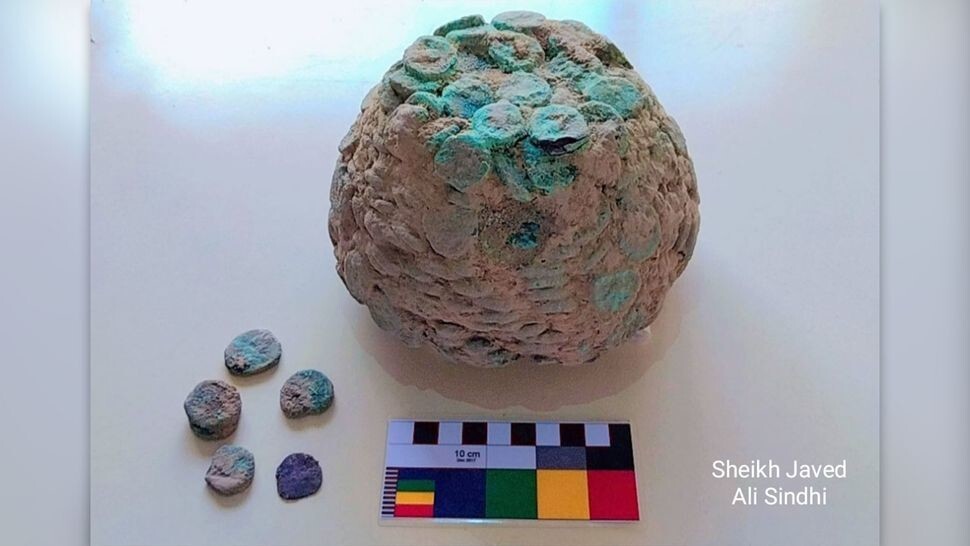
Mohenjo-Daro - meaning "hill of the dead" in Sindhi - was abandoned around 1800 BC. e. along with other major cities of the Indus Valley Civilization. Researchers believe that the ancient cities were too far from the banks of the Indus River to survive the drought, forcing people to move to smaller settlements in the foothills of the Himalayas. 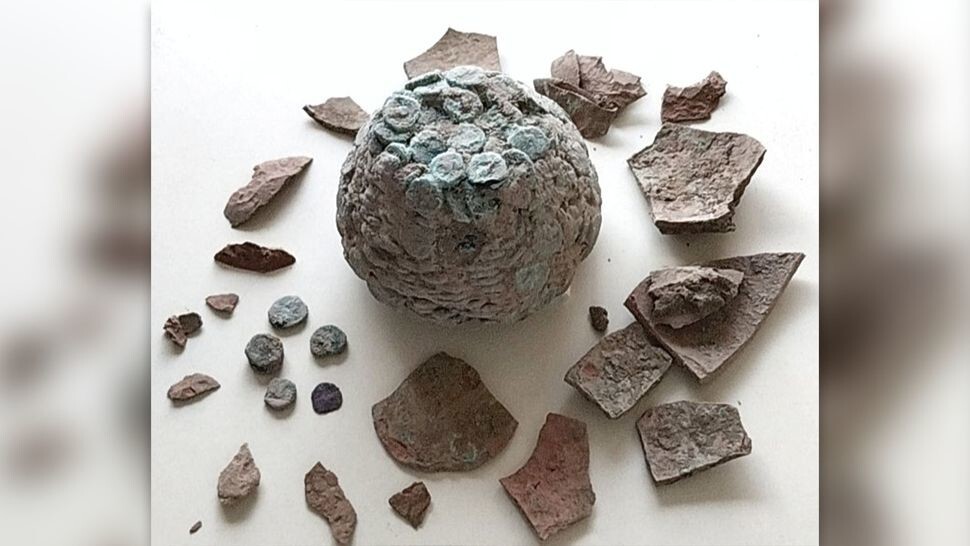
It is believed that around 150 AD. e. The kings of the Kushan Empire ordered the construction of a Buddhist stupa at Mohenjo-Daro. By that time, the age of the ruins of the ancient city was almost 2000 years. 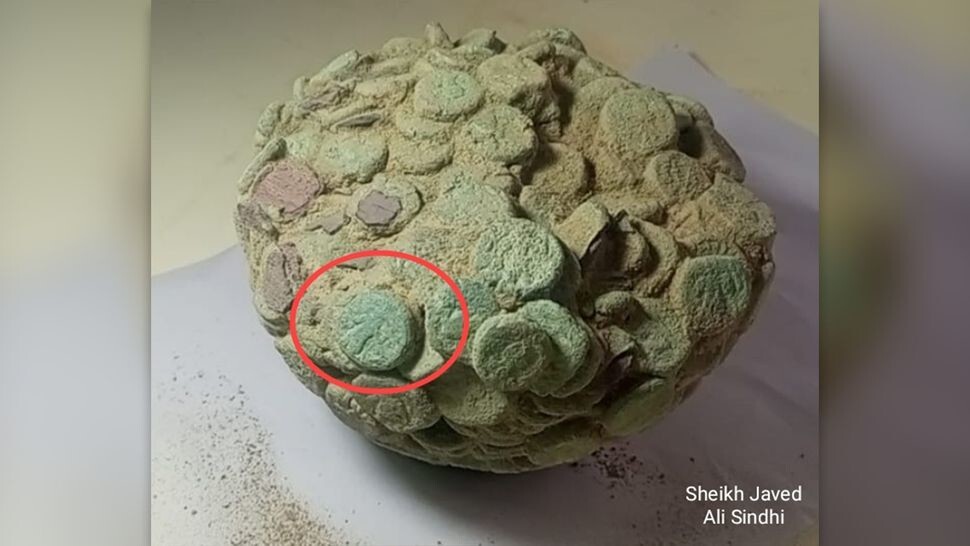
The stupa was abandoned around 500 AD. BC, perhaps after it was damaged by an earthquake, or due to the decline of Buddhism in the region. By that time, the Kushan Empire had broken up into independent kingdoms, which were conquered by the Sasanians. 